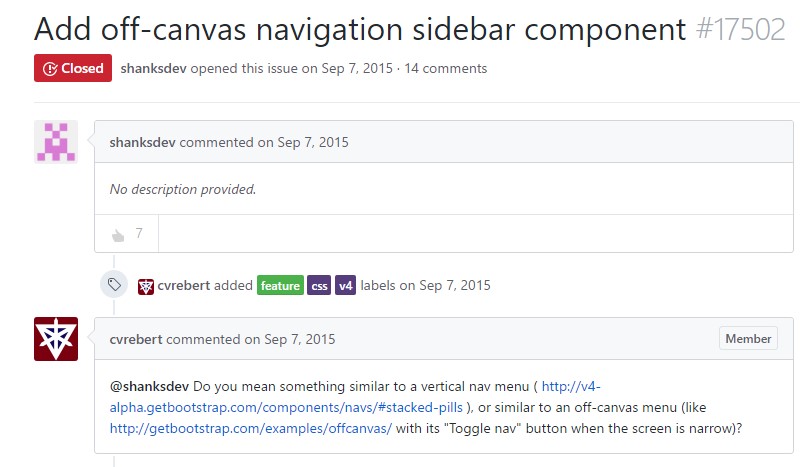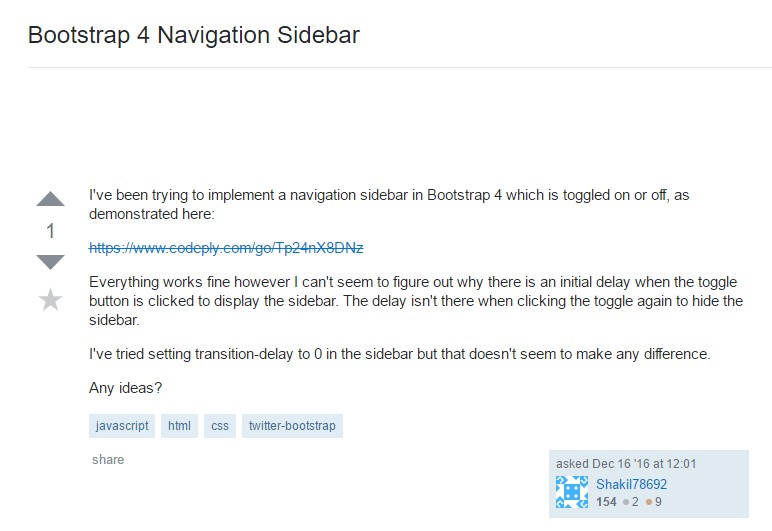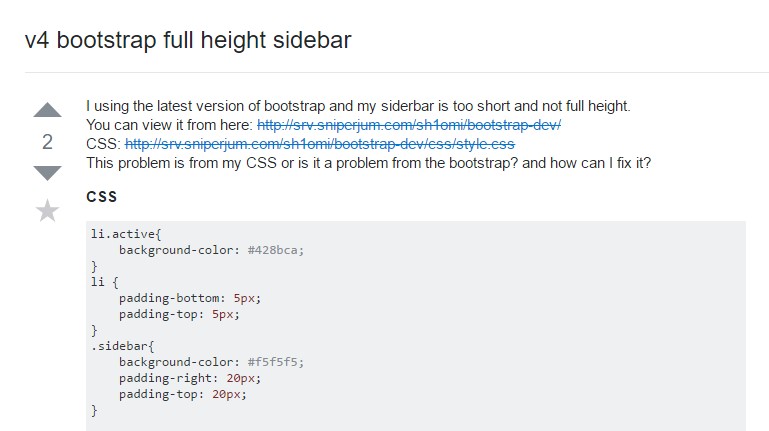Bootstrap Sidebar Collapse
Overview
When it comes to most of the web pages we currently see the material escalates from edge to edge in width with a beneficial navigating bar above and simply conveniently gets resized when the determined viewport is reached so somewhat the showcased material fluently uses the entire width of the web page attainable. However at a certain occasions the wanted purpose the pages have to work in require together with the fluently resizing material place yet another area of the provided display screen width to get specified to a still vertical element with some hyperlinks and material within it-- in other words-- the widely known from the past Bootstrap Sidebar feature is wanted.
The ways to utilize the Bootstrap Sidebar Collapse:
This is rather outdated method but if you certainly need to-- you are able to make a sidebar element with the Bootstrap 4 system which together with its flexible grid system additionally deliver a couple of classes created most especially for developing a secondary level navigating menus being certainly docked along the web page.
However let us begin it quick-- by simply just nesting some columns and rows -- It is supposed this might be the simplest method. And by nesting I intend you can absolutely gave a .row component placed inside a column one-- it commonly performs the similar approach except for the available columns in a single line inhibition-- in the case that you nest a row within a column you are able to have up to the column's width extending inner columns inside it prior to they wrap to a new line.
So let's say we want a right adjusted Bootstrap Sidebar Submenu having several web content within it and a principal page to the left of it. We must prepare the grid tier down to what we wish to keep this arrangement right before the sidebar and the major web content stack around each other-- let's claim-- medium and up. And so a possible solution attaining this might be this:
First we really need a container feature to hold the columns and rows and considering that we are certainly developing something a little bit more complex the .container-fluid class might be the ideal one to elect it to-- this way it will certainly always spread over the entire visible width accessible.
Next we demand a .row to cover the fundamental structure into which in our instance would be a wide column for the information and a smaller-- for the sidebar-- let's say we'll break up the width in 9 by 3 columns in width. Therefore the 1st column element have to possess .col-md-9 and the 2nd one - .col-md-3 class applied.
Next within all of these columns we have the ability to just create some excess .row elements and fill them up up with some material creating 1st the main page and after it-- the materials of the sidebar the same as two smaller webpages laid out side by side.
A couple of additional recommendations
Additionally in case you need to create a sidebar navigation menu along with the desired .col-* class you can assign it the .sidebar class and wrap the page’s main content into a <main> element applying it the rest width with a .col-* class and appropriate offset equal to the sidebar’s width to make the nicely display side by side.
Also in the event you have to make a sidebar navigation menu along with the wanted .col-* class you can assign it the .sidebarclass and wrap the webpage's leading material into a <main> element utilizing it the rest width using a .col-* class and suitable offset equal to the sidebar's width to get the nicely feature side by side.
Check out a few on-line video tutorials regarding Bootstrap sidebar
Connected topics:
Add in off-canvas navigation sidebar component

Stackoverflow: Bootstrap 4 Navigation Sidebar

V4 Bootstrap entire height sidebar

Mobile Bootstrap Navigation Menu Demos
HTML Bootstrap Accordion Menu Examples